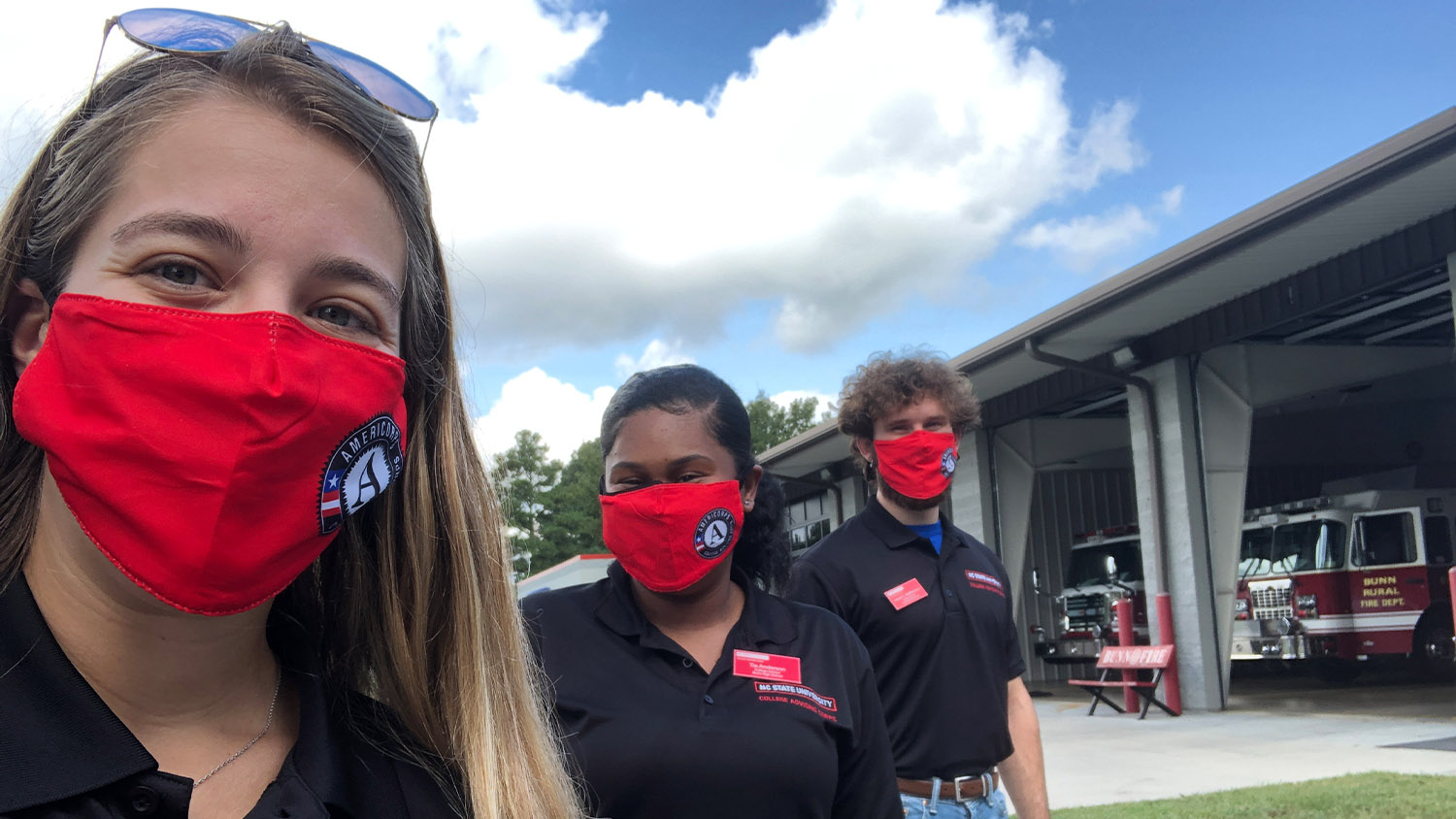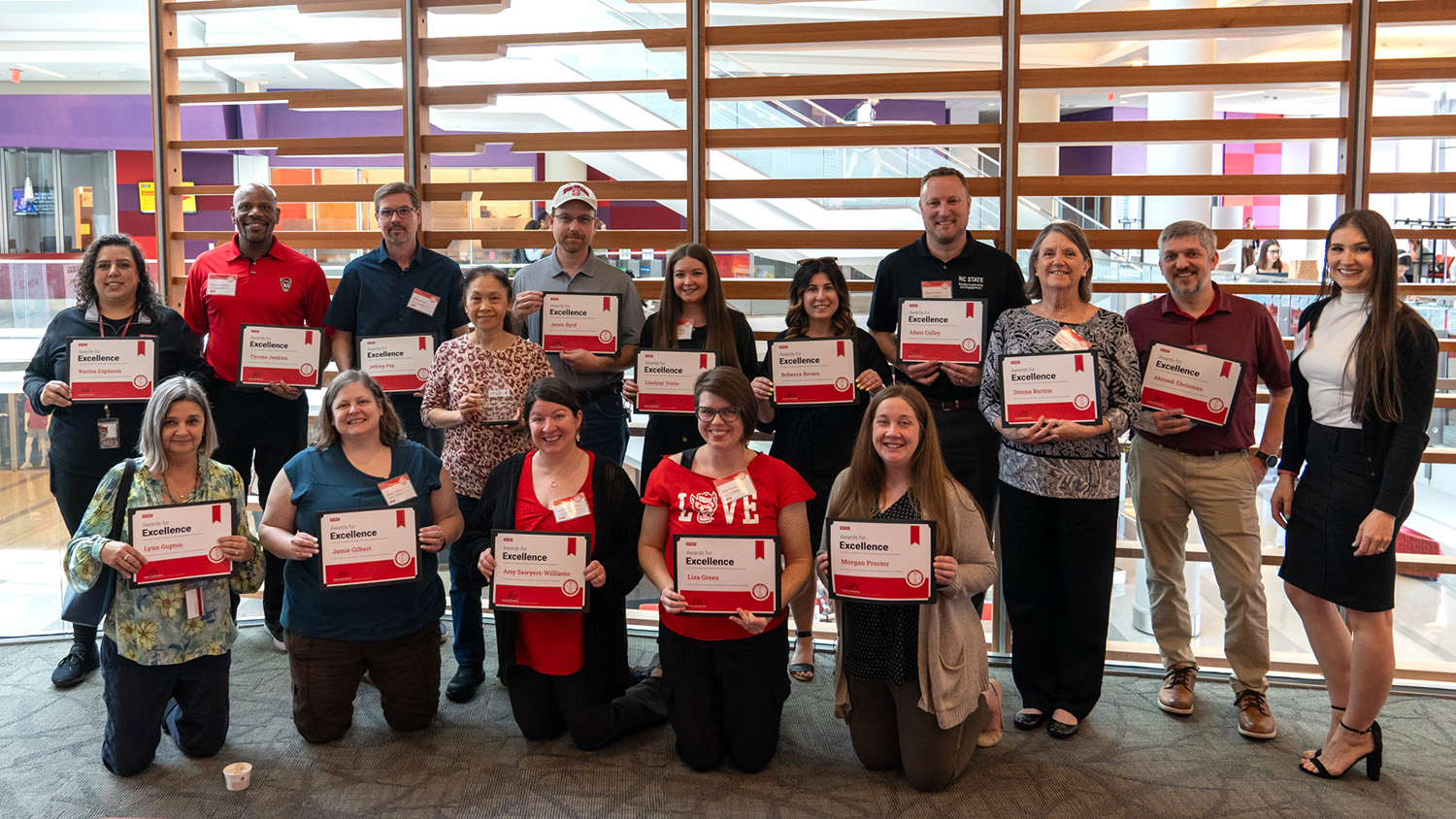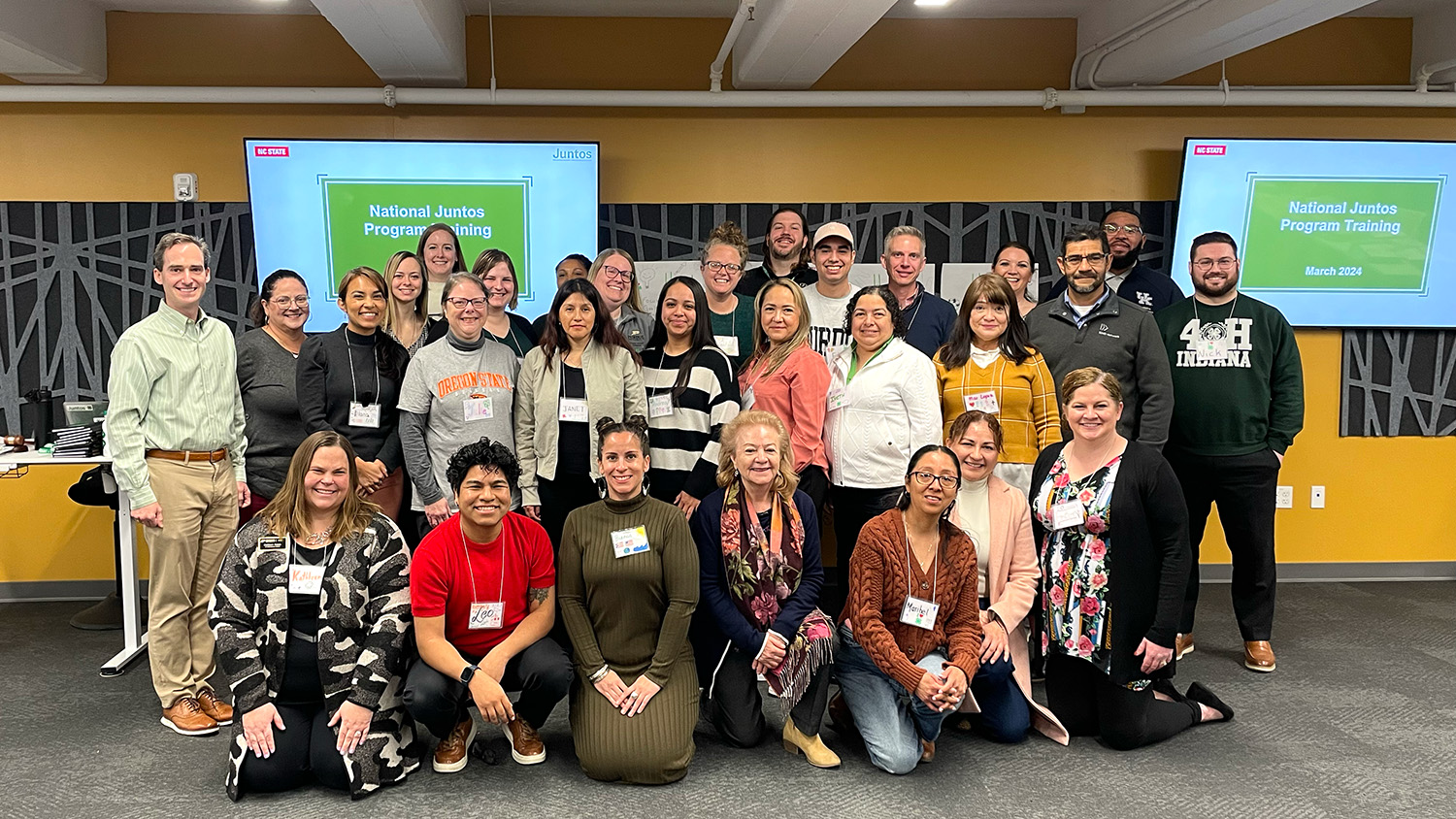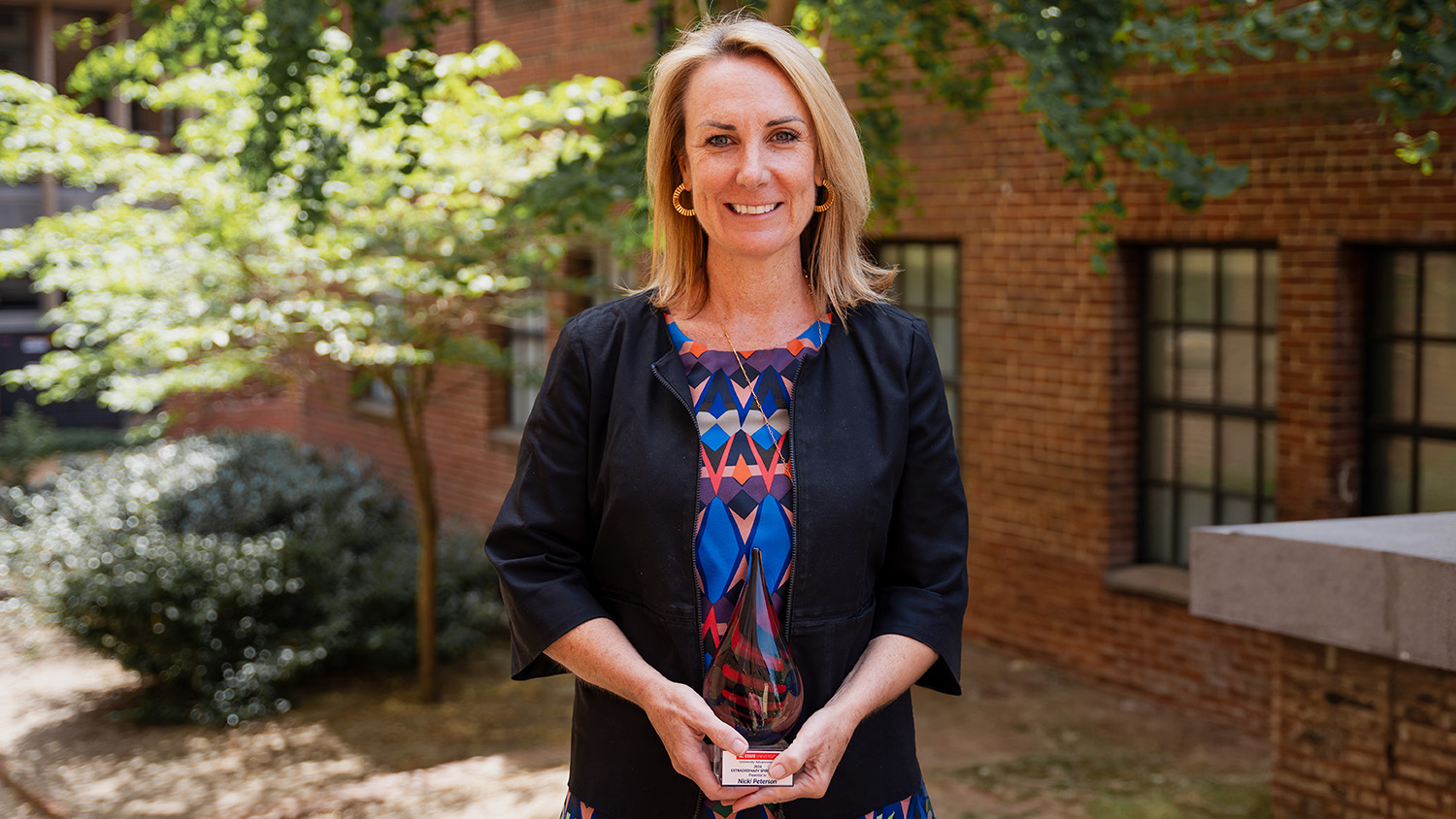When College Advising Takes a Back Seat
Ally Pearsall, a college adviser at Franklinton High School, shares some of the additional ways college advisers can help students and the communities they serve during the COVID-19 pandemic.

By Ally Pearsall, college adviser at Franklinton High in Franklin County
We all know that students in 2020 are experiencing one of the toughest, dare I say most unprecedented, times in education and in higher education. So many have encountered completely new challenges. Internet access is not available to many of our students, and many cannot risk their lives to attend school in-person no matter how badly they may want to. These concerns are especially prominent in rural and low-income communities the NC State College Advising Corps serves. Because of this, I have seen college advisers take the opportunity to step up and lend a helping hand in ways they may not have had to before.
We are communicators.
Reaching out to students can no longer be accomplished by one or two avenues of communication. Advisers have had to get creative and find new ways to reach out to students, often on more than one platform, to make sure everyone is receiving information. Advisers have also acted as a connection between the school staff and students who are not in school. Often, students confide in their college adviser about internet issues or other things hindering them from keeping up with their school work that they did not tell the school about. Communicating student situations to counselors and teachers can help bridge the gap and provide students resources they may not have known were available.
We hold each other accountable.
Now more than ever, advisers need each other. It has been so helpful and important for college advisers to check in with each other just to make sure the school year is running smoothly or to share ideas about how to reach more students in their community. Advisers also ensure school staff and students uphold social distancing guidelines. This helps maintain a safe school and work environment for everyone.
We are a listening ear.
Students are going through so much right now. They may even be reconsidering their future plans because of current job opportunities, not wanting to continue school virtually, struggling in their current classes, etc. It is a difficult task to advise students when it feels like there is a lot of uncertainty in their future. Advisers have taken this as an opportunity to hear out students’ concerns, validate them, and talk about the steps needed for them to achieve those goals. The world we live in is never ideal, but providing students a space to talk about their concerns is a great opportunity to connect with them and provide reassurance.
We are working as a team.
It is clear that there is no way for college advisers to do their job alone. More than ever, we are relying on teachers, counselors, administrators and other college advisers for so many things. In return, many college advisers have taken it upon themselves to lighten the load for others by helping with welfare checks on students, distributing computers or hot spots, or supporting events hosted by other staff members to increase student engagement.
It is easy to get lost in the numbers. As a second year adviser, my data haunts me every day and reminds me that I am not reaching the same percentage of students as I had this time last year. But the real measure of success, that we have been so kindly reminded of in 2020, is doing your best at what is within your control. This does not mean reminding students every day to do their FAFSA. Sometimes it just means showing up and doing what you can to help those who need it.


